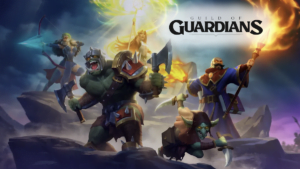The U.S. Patent and Trademark Office and the U.S. Copyright Office have jointly released a comprehensive study assessing the intersection of non-NFTs with intellectual property (IP) rights and law. The exploration involved public inquiries, roundtable discussions, and literature reviews to understand the nuanced issues related to NFTs.
The report recognizes the “copyright and trademark infringement associated with NFTs.” Still, it says they “do not believe that changes to intellectual property laws, or to the Offices’ registration and recordation practices, are necessary or advisable at this time.”
Navigating the Complexities of IP Rights in the NFT Arena
The report highlights NFTs’ positive aspects, such as their potential to enable artists to receive royalties from resales, aid trademark owners in brand expansion, and streamline the management and transfer of IP rights.
Yet, the report recognizes the substantial challenges, especially the widespread confusion regarding IP rights in NFT transactions and the potential use of NFTs in infringing activities.
Today, @USPTO and @CopyrightOffice published the results of our joint study on the intellectual property law and policy implications of non-fungible tokens (NFTs). Learn more and read the report: https://t.co/HBy2tNB7Qk pic.twitter.com/IrhynPLWo6
— USPTO (@uspto) March 12, 2024
Kathi Vidal, the Under Secretary of Commerce for Intellectual Property, commented on NFTs’ dual nature, stating, “NFTs offer unique opportunities for creators to leverage their IP rights but also present new challenges in keeping their work secure.” Vidal highlighted the ongoing efforts to understand and adapt to the IP implications of these emerging technologies, especially through the USPTO’s Artificial Intelligence and Emerging Technologies Partnership.
Towards a Balanced Approach for NFTs and IP Rights
A key point from the study emphasizes the complexities of enforcing trademark rights in the NFT domain, citing, “Trademark infringement is prevalent on NFT marketplaces, and trademark enforcement efforts are complicated by the decentralized and anonymous nature of NFT platforms.” This acknowledgement points to the inherent difficulties posed by the decentralized architecture of blockchain networks on which NFTs reside.
The study revealed a general consensus against creating NFT-specific legislation for trademark infringement. This is partly due to the rapid evolution of NFT technology and pending federal court cases that are expected to provide legal clarity. As the report notes, many such cases “are still pending and will likely provide answers.”
Looking to the future, the Offices suggest that existing statutory enforcement tools are sufficient for current infringement issues but highlight the importance of product transparency and consumer education to tackle concerns beyond legal boundaries.




